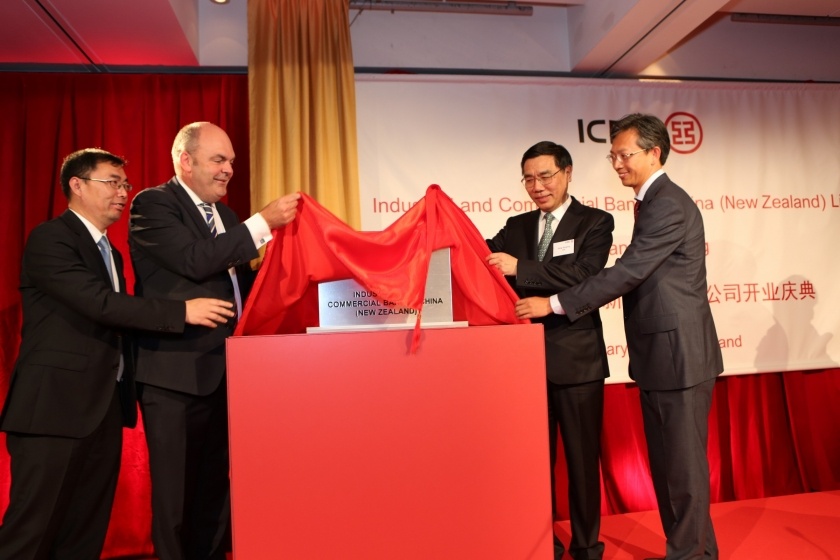Major Chinese bank eyes Auckland’s transport projects
Industrial and Commercial Bank of China (ICBC), the world’s most profitable bank, has established a branch in Auckland and is ready to invest in the city’s large infrastructure projects.
ICBC created a subsidiary in New Zealand, obtained a full banking licence and opened its Auckland office and Queen St retail branch in February 2014. ICBC had completed a global network of banking operations in 40 countries since it listed on the Shanghai and Hong Kong Stock Exchanges in October 2006.
It was then the world’s largest initial public offering (IPO) and ICBC raised $US21.9 billion. In 2013 ICBC was ranked No 1 on the Forbes Global 2000 list of world’s biggest public companies, and No 1 in The Banker’s Top 1000 World Banks ranking.
ICBC has assets valued at $US3.1 trillion, employs 442,000 people worldwide, and reported gross profit of $US55.48 billion in 2013.
"Our clients have gone global and it’s very important that we provide global financial services capability," says Jun Jing, Executive Director, General Manager of ICBC New Zealand.
ICBC, based in Beijing, presently has 6 per cent of its assets and revenue allocated overseas and it wants to increase this ratio to 10 per cent.
Mr Jing says New Zealand is a small economy but "we wanted to be the first Chinese bank here. The trade and investment between New Zealand and China is getting larger – it’s a very good match. We want to make transactions between China and New Zealand more efficient and cheaper."
"China needs high quality food and technology and New Zealand, with its environment and lifestyle, is a destination choice for Chinese – both tourism and immigration," he says. "We think we will be assisting more clients to New Zealand and New Zealanders wanting to do business in China."
Mr Jing says ICBC is keeping an eye on proposed projects and is happy to be involved with Auckland urban infrastructure, such as the $2.4 billion City Rail Link, $500 million SkyCity international conference centre and hotel, and the $100 million upgrade of State Highway 1 between Puhoi and Wellsford.
"ICBC has a lot of experience worldwide with infrastructure financing, especially involving public- private partnerships (PPPs), and it likes to operate in an environment that speeds up projects. With PPPs, banks can easily step in to meet finance requirements and council can leverage the construction."
"If there is a suitable structure, then maybe we can tap (international) finance in China," he says. "For many Chinese investors, speed is important – they like to make a decision quickly and therefore get a quicker return. But more and more are becoming accustomed to accepting a lower return for a longer term investment."
Mr Jing says Chinese investors like to have "more information and transparency about projects – this kind of communication is very important."
ICBC’s first move in New Zealand was to become part of local banking syndicates. "We want to show our co-operation with local banks rather than compete," says Mr Jing. ICBC joined a funding facility for telecommunications firm, 2degrees, and guaranteed $100 million of the $800 million banking syndication for the new Transmission Gully motorway south of Wellington.
